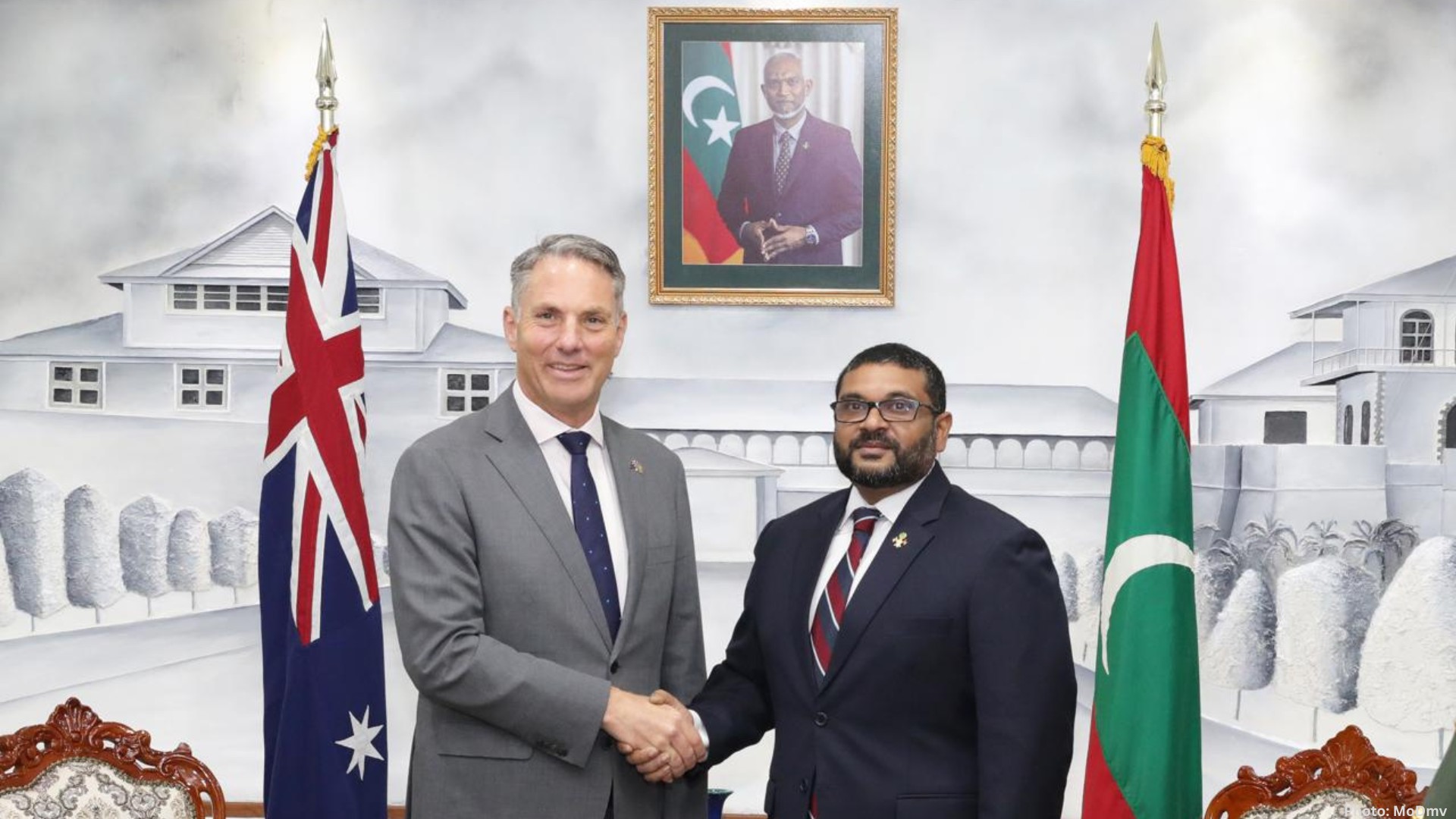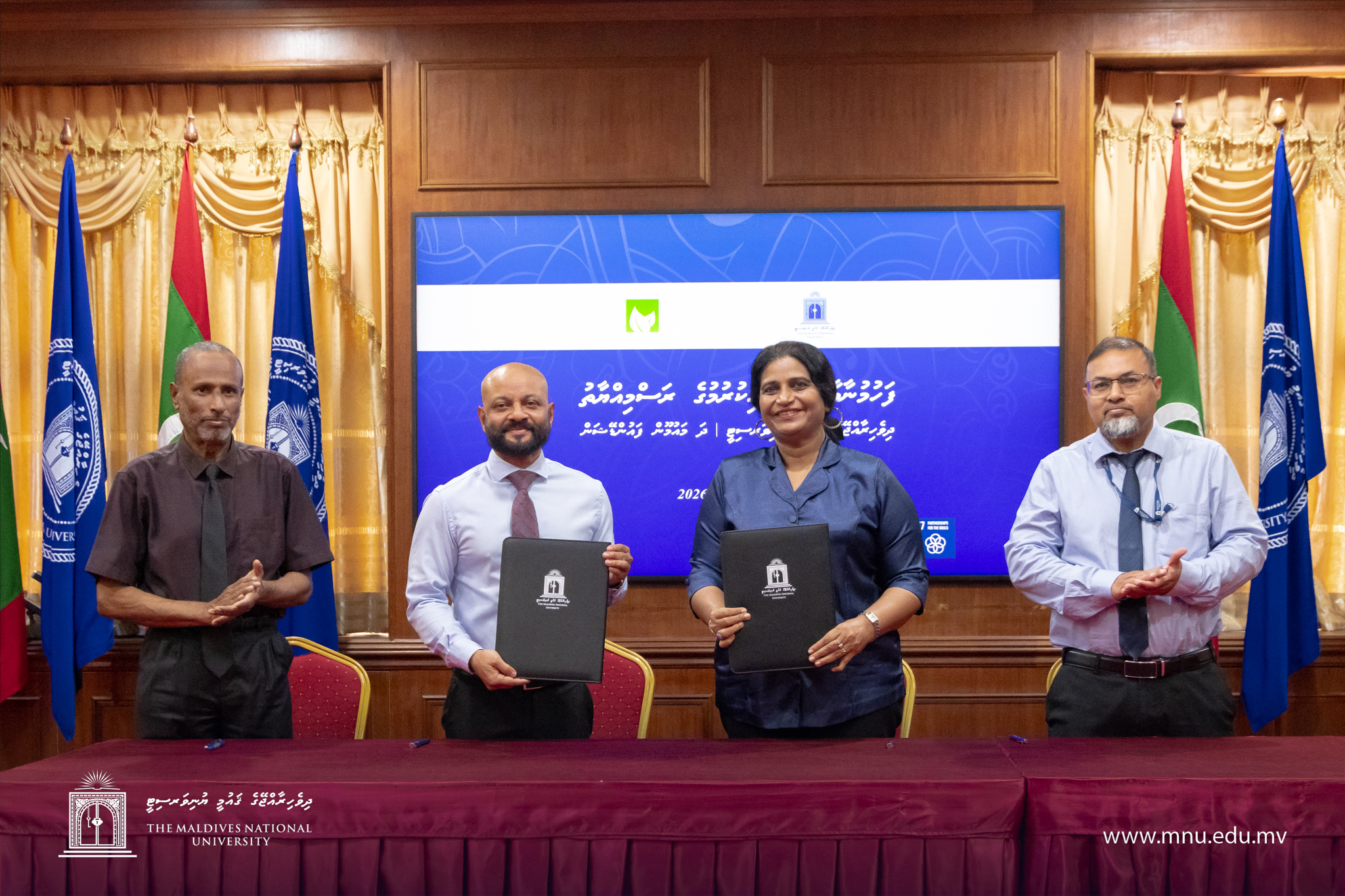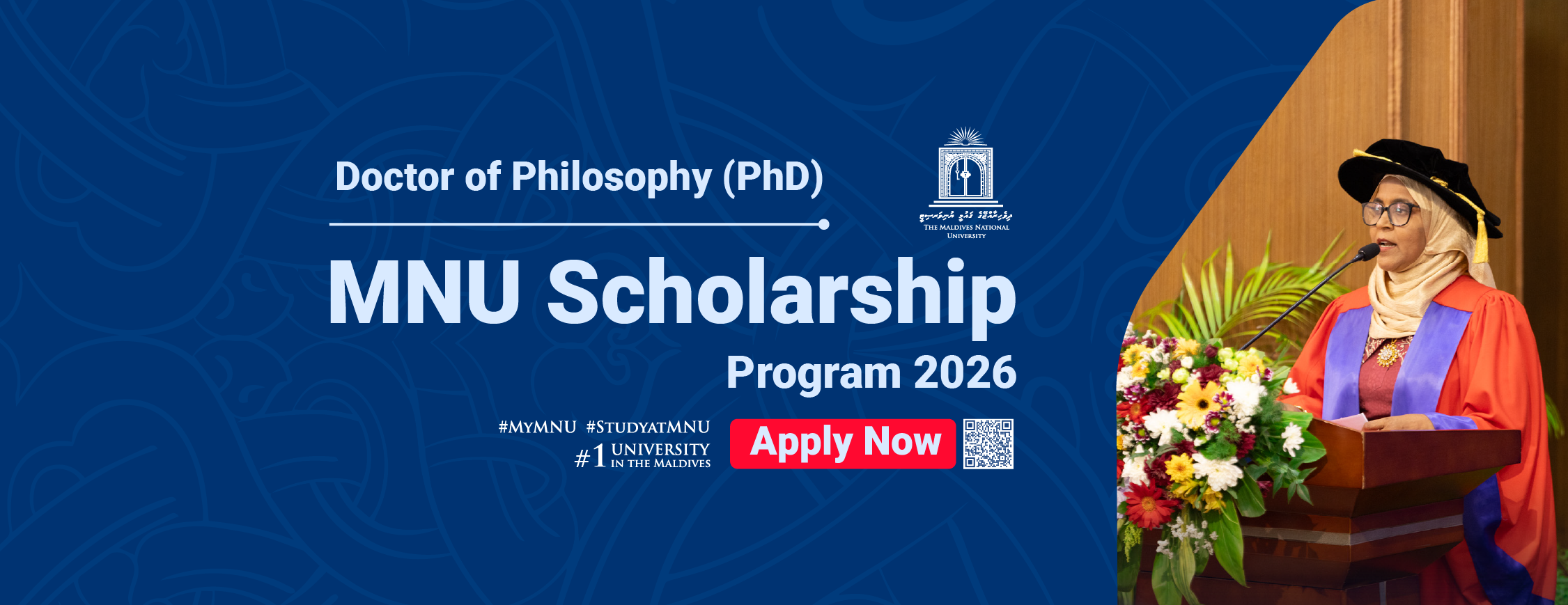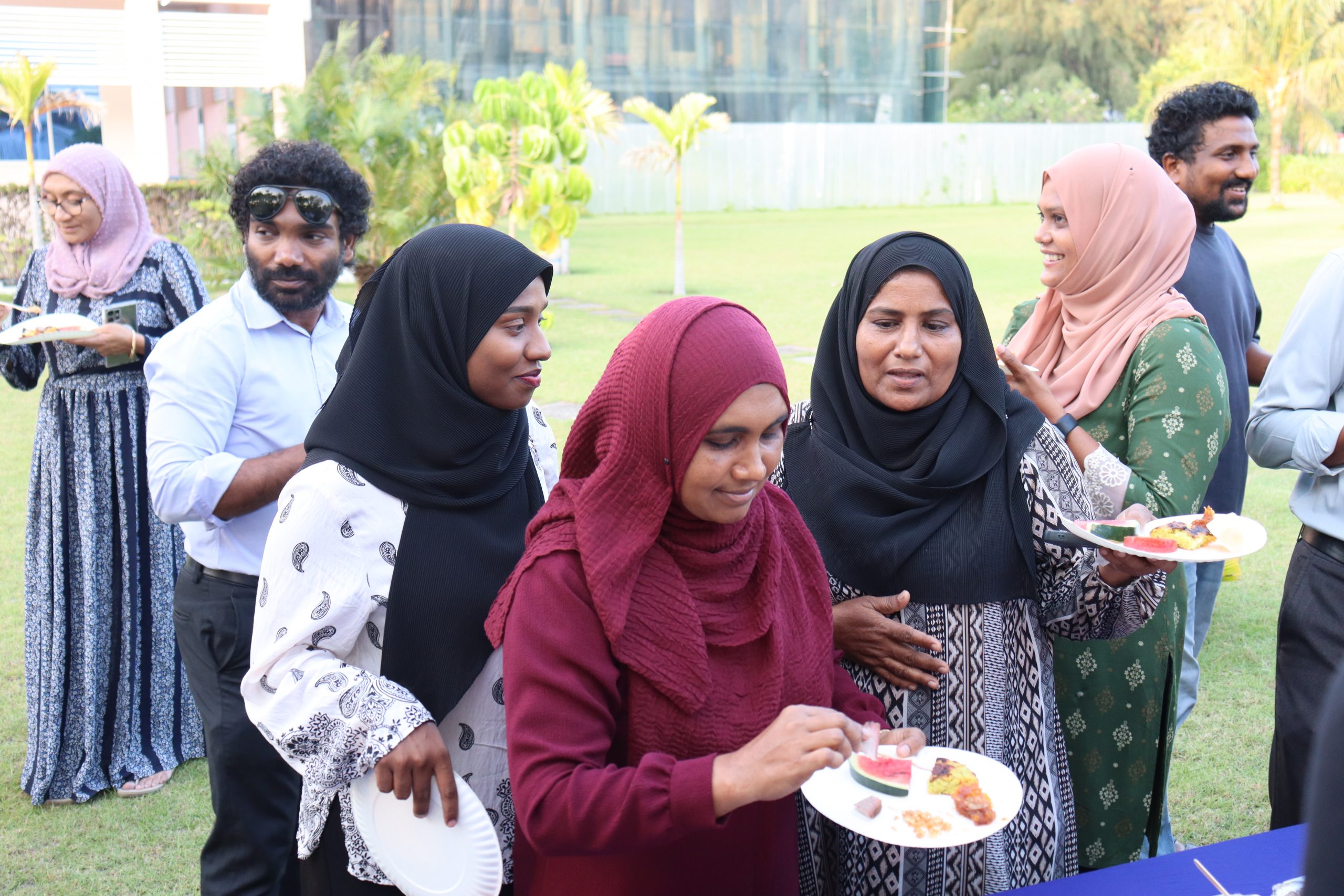Introduction
As a small island state situated at the crossroads of vital sea lanes, Maldives holds strategic leverage in shaping the governance of regional security strategy.
The relationship between Australia and Maldives stands as a testament to the evolving regional strategic engagements, safeguarding regional stability and promoting a free and open Indo-Pacific.
The recent announcement by Australian Deputy Prime Minister and Minister for Defence, Hon. Richard Marles MP, during his official visit to the Maldives on 2 June 2025, regarding the Australian Government’s pledge to gift a steel-hulled Guardian-class Patrol Boat—designed and constructed by Austal Australia—to the Maldives National Defence Force (MNDF), marks a significant milestone in the deepening of defence cooperation and strengthening bilateral relations between Australia and Maldives.
Australia’s initiative will not only augment Maldives’ maritime security capabilities but will also reinforce Australia’s strategic policy of supporting small states in the Indian and Pacific Oceans, emphasising its priorities of building collective security through multilateral collaboration and engagement with the Indian Ocean states.
Strategic Significance of the Patrol Boat
The Guardian-class Patrol Boat, launched as part of Australia’s Pacific Maritime Security Program (PMSP), a programme that builds on the original Pacific Patrol Boat Program, is a versatile vessel designed for a range of maritime operations including surveillance, search and rescue, fisheries protection, and interdiction missions.
Built with a 22 x 39.5-meter steel hull and aluminium superstructure, the PMSP’s Guardian-class Patrol Boat features a top speed of 20 knots, a range of up to 3,000 nautical miles, and accommodates up to 23 personnel. Its robust design and integrated navigation and communication systems make it ideal for extended patrols in challenging maritime environments.
Under PMSP, Australia has committed to supporting regional maritime security for the next 30 years. This includes the delivery of 24 Guardian-class Patrol Boats, 3 landing craft, and additional maritime assets such as a small loan fleet. The support package also features major maintenance and infrastructure sustainment, crew training through the Royal Australian Navy and commercial providers, in-country Navy advisers, contracted aerial surveillance for intelligence-led patrols, and enhanced regional coordination and communication.
Lessons for Security Studies: From Editor’s Chat with the Deputy Prime Minister
In addition to the official visit to Maldives by the Deputy Prime Minister, which made an auspicious event, the pledged gifting of the Guardian-class Patrol Boat also cultivates important thoughts for international relations and security studies students.
In a brief chat I had with him, the Deputy Prime Minister shared his thoughts and explained, not only the policy aspects, but also the ideas and shared interests that can define the present and future engagements between the two countries.
In response to questions regarding the role Maldives can play alongside Australia in promoting a free and open Indo-Pacific—and with Australia’s recent gifting of a patrol boat to the Maldives National Defence Force (MNDF)—the Deputy Prime Minister reaffirmed the commitment to deepening defence and security cooperation between the two nations.
He highlighted that this creates significant opportunities for Maldives to enhance its maritime security capabilities and to engage more actively with regional navies, including Australia’s.
The Deputy Prime Minister underscored the importance of Maldives’ geographic location, particularly its position along the Eight Degree Channel—a critical maritime corridor that hosts major international shipping lanes and trade routes connecting Australia and other parts of the Indian Ocean. This, he noted, highlights the leadership of Maldives and its geographic positioning as a key factor in ensuring regional security.
The gifting of the patrol boat to the Maldives will reflect Australia’s broader diplomatic and defence outreach to small states in the Indian Ocean. This outreach is rooted in Australia’s recognition of the critical role small states, including the Pacific Islands, play in safeguarding the ocean for national and regional security.
Conceptual Base: Small States Agency
The Guardian-class Patrol Boat can enhance MNDF’s force structure and operational readiness in addressing non-traditional security threats such as illegal fishing, drug trafficking, and maritime terrorism, bolstering the forces’ capabilities to protect territorial waters and beyond.
This leadership role of Maldives in security may challenge traditional, neo-realist assumptions framing small states as passive actors in global affairs.
Historically, Cold War-era security frameworks, such as the North Atlantic Treaty Organisation (NATO), marginalised small states, preventing them from influencing strategic decision-making. However, the post-Cold War era has witnessed a recalibration of this dynamic, including NATO’s approach to regional security.
Small states like Maldives have leveraged their geostrategic positions to influence regional and global security agendas. For example, the Pacific Islands have navigated complex geopolitical terrains to maximise development and security gains.
According to the Lowy Institute’s paper Geopolitics in the Pacific Islands: Playing for Advantage, Pacific Islands, like the Solomon Islands, have strategically positioned themselves as “friends to all, enemies to none,” allowing them to leverage competition between major powers—such as China, Australia, and the United States—for political and economic benefit. This approach has enabled them to secure increased aid, infrastructure investment, and security cooperation.
The 2018 Boe Declaration on Regional Security, adopted by the Pacific Islands, exemplifies the shift by articulating a collective security narrative that integrates traditional and non-traditional threats, including climate change, into regional development and security discourse.
A similar effect was seen from the Maldives’ active participation in climate negotiations under the United Nations Framework Convention on Climate Change (UNFCCC) since the 1980s, illustrating its capacity to shape global discourse.
The narrative on non-traditional threats to small states aligns with Australia’s defence and security strategy, incorporating climate-threat narratives into military readings.
Australia-Maldives Defence Cooperation
Australia’s defence cooperation with Maldives has deepened significantly in recent years. The establishment of the Australian High Commission in Malé in 2023 – officially inaugurated on 2 June 2025, by the Deputy Prime Minister (in his visit to Maldives) and the Maldives’ Minister of Agriculture and Animal Welfare Dr. Mariyam Mariya – has come with many avenues of cooperation, including community engagements, building confidence and people-to-people relationships, and creating a sense of mutual belonging in the spaces of engagement.
Australia’s diplomatic presence has enhanced mutual understanding and trust.
The High Commission plays a pivotal role in coordinating defence initiatives, including joint security and strategic talks, search and rescue operations, and capacity-building programs.
Military-to-military engagement can enforce an act of defence diplomacy, creating an understanding of collective, but mutually exclusive, security interests, through cultural and narrative exchanges.
The delivery of the Guardian-class Patrol Boat will represent the next phase of this ongoing partnership. It will reflect Australia’s strategic interest in supporting the maritime security capabilities of Indian Ocean littoral states. As Australia and Maldives share the Eastern Indian Ocean (EIO), they face common maritime threats such as transnational crimes, illegal fishing, and environmental degradation.
The patrol boat can enhance the MNDF’s ability to monitor and secure its vast Exclusive Economic Zone (EEZ), actively participating in and contributing to Australia’s EIO operations at sea.
In the joint media release by the two countries, the Deputy Prime Minister stated:
Australia is proud to partner with Maldives to support its maritime security capability.
In line with our National Defence Strategy, Australia is working with partners across the Northeast Indian Ocean to maintain regional security and stability.
Australia is pleased to gift a Guardian-class Patrol Boat to Maldives and will continue to seek opportunities to deepen our long-standing defence partnership.
As Indian Ocean countries, Australia and Maldives share a vision of our region that is peaceful, stable and prosperous.
Maldives’ Minister of Defence, Hon Mohamed Ghassan Maumoon stated:
Our nations are bound by a mutual commitment to the safety and security of the seas – particularly in the vital area of search and rescue operations, where we share a common border.
It is with deep appreciation and sincere gratitude that we acknowledge the generous gift of hydrographic equipment and a Guardian-class Patrol Boat from the Government of Australia.
The gifting of a Guardian-class Patrol Boat to the Maldives National Defence Force is a testament to the strong and enduring partnership between our nations.
Gifting a Guardian-class Patrol Boat to the Maldives brings us closer to the realisation of His Excellency President Dr. Mohamed Muizzu’s vision of doubling the strength of the Maldives Coast Guard.
Conclusion: Towards a Resilient Indo-Pacific
The Australia-Maldives partnership exemplifies the importance of inclusive security frameworks that recognise the agency of small states and their capacity to contribute meaningfully to regional stability. The gifting of the Guardian-class Patrol Boat will be more than a bilateral defence initiative; this will be a strategic investment in a shared vision of maritime security, resilience, and cooperation, especially in an era where the Indo-Pacific has emerged as the epicentre of geopolitical contestation and maritime cooperation.
Author
Dr Athaulla A Rasheed is the Head of Centre at the Centre for Security and Strategic Studies at The Maldives National University. A former foreign service officer and diplomat at the Ministry of Foreign Affairs, Maldives, Athaulla also holds two PhDs in international and strategic studies, and political science from ANU and the University of Queensland, Australia.





